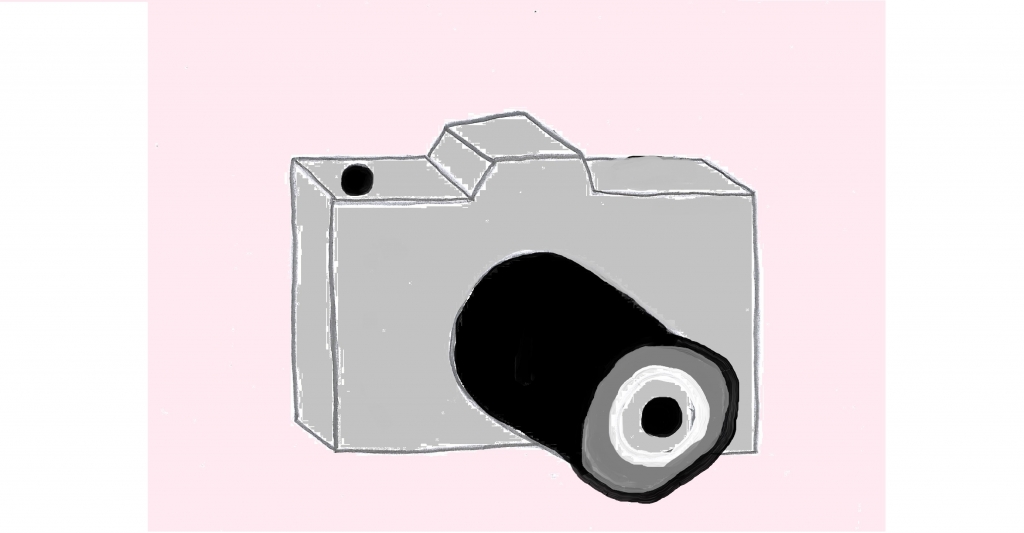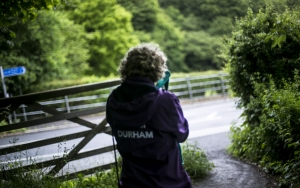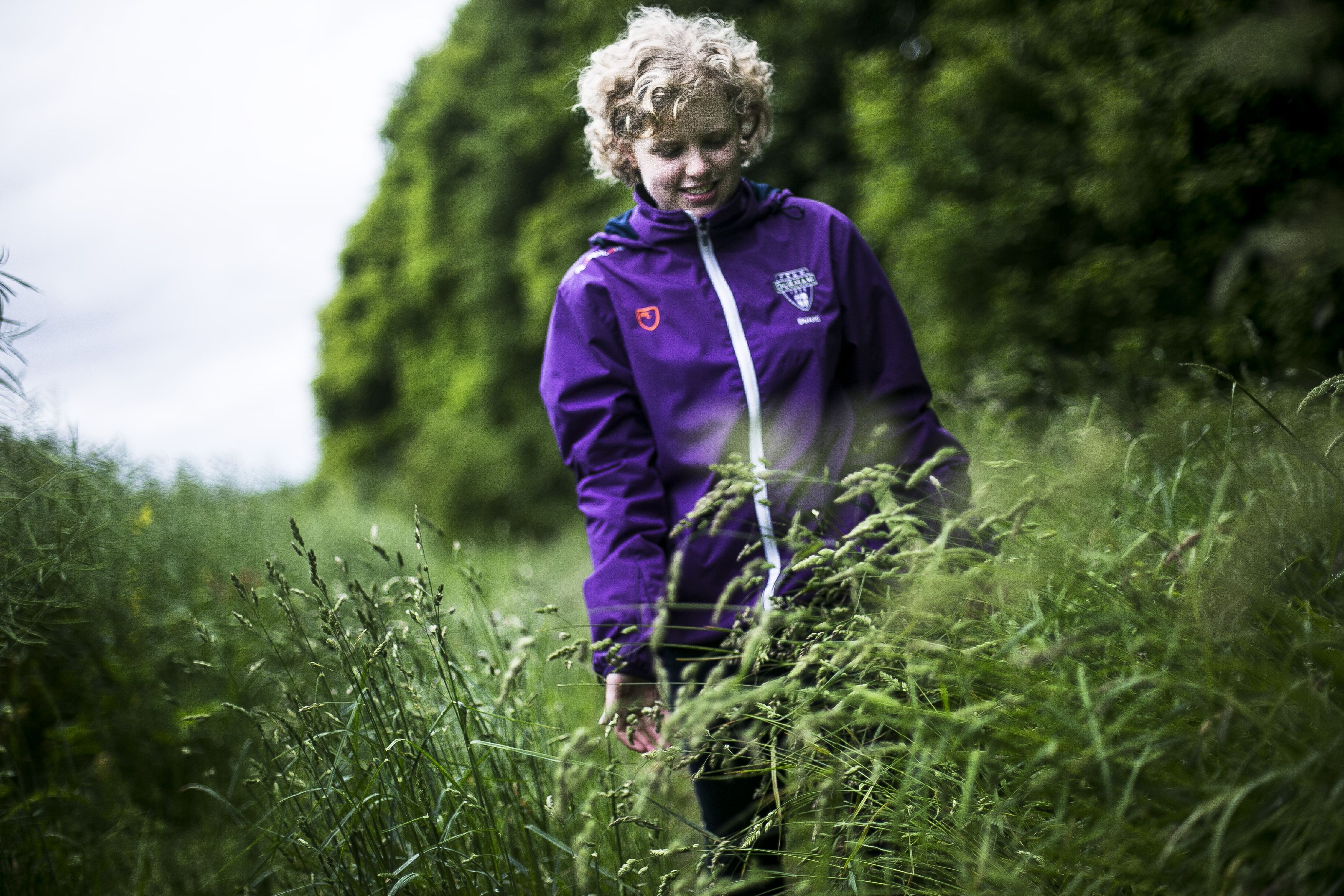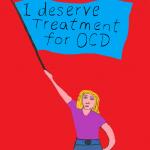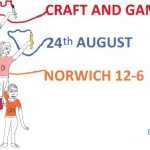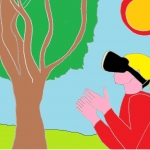OCD Photographed
October 10th 2015
In June of this year, India George (member of the YAP) met with Tanya Raab, a photographer who documented India’s OCD. Tanya’s website is http://cargocollective.com/
Here is her report:
It’s Friday afternoon and I’m about to meet India George for the first time.
I’m nervous and a bit worried about making a good impression and making her feel as comfortable as possible but I can’t even imagine what is going through her mind right now.
I start talking about myself at first to let her get to know me a little bit better before we dive into her own life. It’s not hard talking about things, there is quite a lot to learn about each other but at the same time I’m constantly worried about saying the wrong things and asking the wrong questions so I’m very careful with choosing my words. I look at her with astonishment and I am utterly amazed at how openly and bravely she speaks about her own life, something very few people manage to do.
India was diagnosed with OCD at the age of 11 and has dealt with it ever since. OCD is an anxiety disorder where someone is subject to intrusive thoughts and worries constantly, these are known as obsessions. The most commonly recognised obsessions are fear of germs, illness and fears of actually acting out the intrusive thought.
As a result, the person feels compelled to perform certain behaviours, which are called compulsions, in order to deal with the anxiety. Common compulsions include frequent hand washing and grooming, checking and tapping. It becomes a disorder when these actions start having an effect on your daily life and it inhibits your ability to do certain things.
For her one of her biggest obsessions she had as a child was worrying about not living up to her parents expectations which created a negative thinking pattern that she couldn’t get away from. She remembers vividly how some of those intrusive thoughts were when she would remember something that she did years before, such as accidentally calling someone a rude name when she was in primary school and in order to deal with those obsessions she would have to keep asking her parents for reassurance
Staggered upon hearing this and all I could think about was why does this happen to anyone. In her own research she made for a project, she comes to the conclusion that it is in fact the fault of the parents that are being overprotective as well as children modelling the behaviour of their parents. To quote her exactly “The more ‘overprotective’ nature that my parents showed towards me means I may have absorbed some of their overprotectiveness” or as her Cognitive Behavioural Therapist put it developed a ‘phobic response’.
The first step for me in understanding her thoughts, was not only by spending time with her but also by analysing her photos. This was I asked her to take photos with a disposable camera which resulted in a series of stunning photos she took in those moments that the intrusive thoughts would appear or be triggered by something/someone.
What strikes me most and what can be seen throughout my images is the difference between the view I have of this amazing person standing in front of me and the thoughts she is actually fighting with in order to have a control over the disorder.
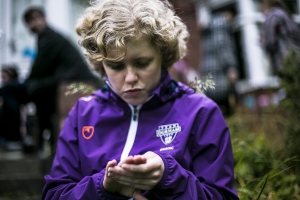
On our way back from the hike, she had warned me about this small area near a fence where she would get this intrusive thought thinking that if she notices a gas smell, then she feels she has to tell somebody so someone else knows about it and she wouldn’t feel as guilty about noticing the smell, which resulted in her running by holding her breath until she would pass that area. I tried understanding her way of thinking and I felt terribly guilty for not being able to do so and I couldn’t smell anything either.
It’s hard to fully understand what the other is going through up until you experience the exact same thing as they are.
But it came to a point where a strong connection was made when we started talking about running. I finally understood exactly what she was saying. For both of us, running is not just about the physical, it’s about the mental health as well. It has expanded our worlds by exploring new places, paths and taking in the world around us. We feel better and we leave all our thoughts and worries at home.
Cognitive Behavioural Therapy has helped India understand her disorder and even though she will always live with it ,she is learning everyday how to not give in to her own thoughts. But it was India who helped me to have an understanding of what it really means to have OCD.
Since it played such an important role in her life, she has always had an interest in OCD and that is one of the reasons why she has joined the OCD Action Youth group because she wants to support others that go through the same thing as her and be there for them. She is also studying Psychology at Durham University.
It’s hard to explain in words how grateful I am to have met India and how honoured I am to be one of the few she opened up to and shared some of her most private stories. OCD is a very sensitive subject and I’ve had an amazing opportunity to learn everything about it and I hope that some day I can share all of the knowledge I acquired about the subject.
The projects I have worked on leading up to this has taught me a lot about one to ones and getting to know my subject. India posed a different kind of one to one of which I was privileged to have been part of. Within the days I spent with her I wouldn’t say I learnt about a disorder but got to know the person who was host of the disorder. India is still very much a person as of you and I and should be taken seriously. We as humans tend to judge though that is often underpinned by narrow mindedness. And though I wasn’t blinkered, my mind has been opened up, and that your mind too should be open before you can even begin to think what it is like to have OCD.
Tanya’s website http://cargocollective.com/
